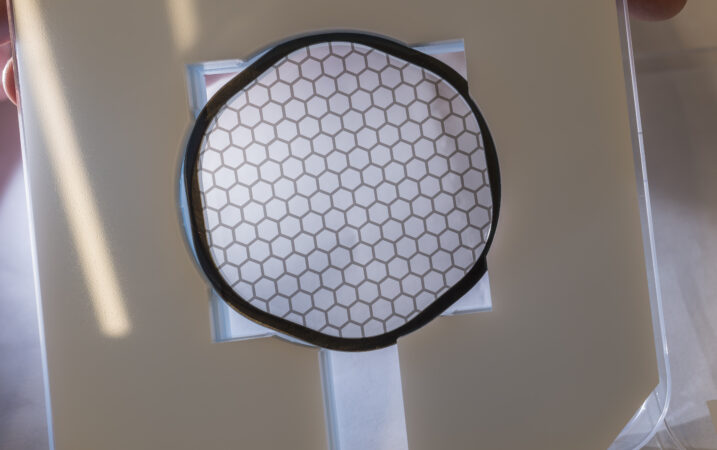
Carbon nanotube transistors
Carbon nanotube transistors are primed to overtake silicon-based transistors in the near future due to their ideal electrical and thermal properties. Carbon nanotube transistors will be smaller, run at a much higher frequency, consume less energy, and can even made into free form factors. Carbon nanotubes have the potential to be the ultimate semiconductor material for future transistors.
Carbon nanotube transistors on track to overtake silicon
The semiconductor industry has worked with silicon-based transistors for more than half a century. This trend can be attributed to Moore’s Law, which states that transistor density is expected to double every year. However, we are soon approaching the physical limits of silicon-based transistors.
Carbon nanotube transistors are primed to overtake silicon-based transistors in the near future due to their ideal electrical and thermal properties. CNT transistors will be smaller, run at a much higher frequency, consume less energy, and can even made into free form factors. Carbon nanotubes have the potential to be the ultimate semiconductor material for future transistors.
The problem with silicon
In order to function, transistors need a semiconducting material that can switch between conductivity and non-conductivity. This produces the binary 0s and 1s that form the basis of computing. However, elemental silicon itself is not semiconductive. It first needs to be doped by introducing impurities such as boron or phosphorus. The ration of silicon atoms is such that in a 14 nm silicon transistor, around 100 dopant atoms are present.
The issue arises when we get to features that are only three nanometers wide. Here, there could be one, three, or even no doping atoms per feature depending on the luck of the draw. Since each feature is relatively well isolated, its electrical properties will be substantially different, leading to an engineering nightmare.
A superior solution thus requires material that does not need doping. This is where carbon nanotubes come in. Carbon nanotubes with a certain chiral angle could make an ideal semiconductor for future transistors due to their extremely good electrical and thermal properties.

Greater electrical conductivity
In principle, due to their electrical properties, carbon nanotube transistors could run three times faster than its current silicon counterparts whilst consuming only a fraction of energy.
For example, this would allow carbon nanotube transistors to be applied in devices that necessitate a high flow of high throughout small area, such as in fast-paced wireless communication applications.

Optimal thermal properties
Due to their thermal properties, CNT transistors can be manufactured at near room temperature. This allows layers of circuits to be built on top of one another to create 3D chips that are projected to beat the performance of the current 2D silicone chip.
Furthermore, due to high heat conductance and heat dissipation mechanisms of CNT, devices will tend to heat up less over the span of usage compared to silicons.
Paving the way for superior carbon nanotube transistors
At only around 1 nm diameter in width, carbon nanotubes are primed to overtake silicon transistors in the near future due to their ideal electrical and thermal properties Not only will these CNT-based transistors be smaller, but they will also be able to run at a much higher frequency and can even made into freeform factors. Further, the band gap of carbon nanotubes can be tuned according to the needs of various applications, which would bring value to almost all kind of computing.
Carbon nanotubes are the ultimate semiconductor for transistors
For almost two decades, Canatu CNTs have been studied in the context of transistor applications in co-operation with Aalto University. The clean, pristine nanotubes enabled by Canatu’s FC-CVD process, together with a gentle direct dry deposition process makes for a good match for any potential future transistor applications. Canatu is currently seeking partners to take the development from Aalto’s university lab to the next technological maturity level with a view towards commercialization and mass production.
Contact our specialist in carbon nanotube transistors

Send us a message
Related content

Through experience, we have achieved consistent quality and properties with carbon nanotubes, which gives Canatu CNT transformative potential. Delve deep into carbon nanotubes.
Due to their high X-ray transparency, robustness and chemical inertness, Canatu carbon nanotube-based filters exhibit strong potential for X-Ray filter applications in space. Discover more.

Canatu creates nano solutions for massive impact. We work with carbon, the most versatile material in the universe, and collaborate with other forerunner companies to make breakthrough innovations. See our company.


